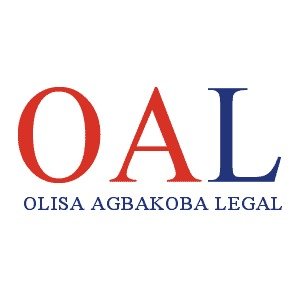Best Project Finance Lawyers in Apapa
Share your needs with us, get contacted by law firms.
Free. Takes 2 min.
List of the best lawyers in Apapa, Nigeria
About Project Finance Law in Apapa, Nigeria
Project finance is a method of funding large infrastructure and industrial projects using the project's future cash flows as collateral. In Apapa, Nigeria, a hub known for its busy port and industrial activities, project finance is an essential tool for building infrastructure such as roads, ports, power plants, and logistics facilities. The legal landscape for project finance in Apapa is shaped by Nigerian federal laws, Lagos State regulations, and international best practices. Legal professionals play a key role in structuring, negotiating, and overseeing project finance transactions to ensure compliance and minimize risks for all parties involved.
Why You May Need a Lawyer
Project finance transactions are complex and involve multiple stakeholders, including lenders, sponsors, government agencies, and project companies. Some common situations where legal advice is essential include:
- Drafting, reviewing, and negotiating loan agreements or security documents
- Securing necessary regulatory permits and approvals
- Ensuring compliance with environmental, tax, and investment regulations
- Resolving disputes or managing litigation arising from project development or financing
- Mitigating risks related to land acquisition, construction contracts, or operation agreements
- Structuring Special Purpose Vehicles (SPVs) to limit liabilities
- Advising on cross-border transactions or foreign investment requirements
Participating in a project finance transaction without proper legal representation can expose individuals and businesses to significant financial and legal risks.
Local Laws Overview
Several laws and regulations impact project finance in Apapa and throughout Nigeria. Important legal aspects to consider include:
- Companies and Allied Matters Act (CAMA): Governs company incorporation and management, essential for setting up project companies or SPVs.
- Securities and Exchange Commission (SEC) Regulations: Required for issuing bonds, notes, or other securities in the capital markets.
- Land Use Act: Regulates land ownership, leases, and transfer processes, which affect project site acquisition and development.
- Nigerian Investment Promotion Commission Act: Encourages and protects foreign investments in infrastructural projects.
- Central Bank of Nigeria (CBN) Guidelines: Oversee banking, lending, and foreign exchange controls in project finance transactions.
- Lagos State Environmental Protection Laws: Apply to projects in Apapa, requiring environmental impact assessments and compliance approvals.
- Contract and Dispute Resolution Laws: Govern the frameworks for contract enforcement, mediation, and arbitration, often included in project finance documentation.
Understanding these laws is critical for minimizing legal setbacks and promoting the smooth development and operation of infrastructure projects.
Frequently Asked Questions
What is project finance?
Project finance is a funding structure where lenders and investors rely on the projected cash flow of a project for repayment, rather than the balance sheets of project sponsors. This method is widely used for large-scale infrastructure and industrial projects.
Can foreign investors participate in project finance in Apapa?
Yes, foreign investors can participate, subject to compliance with Nigerian investment laws and foreign exchange regulations. Some sectors may require joint ventures with local partners or licenses from regulatory bodies.
What is a Special Purpose Vehicle (SPV) in project finance?
An SPV is a legal entity created specifically for the purpose of carrying out a particular project. It limits financial liability and isolates project risks from the parent companies or sponsors.
Are there any taxes on project finance transactions?
Yes, taxes such as stamp duties, withholding tax, value-added tax, and corporate income tax may apply. Tax holiday incentives may also be available under certain circumstances, especially for pioneer or infrastructural projects.
Do I need government approval for a project finance transaction?
Most project finance transactions require approvals or permits from various government agencies, particularly if they involve land acquisition, environmental impact, or cross-border funding.
What happens if a project defaults on its loans?
If a project defaults, lenders can enforce their security interests, which may include seizing project assets. Legal proceedings may involve bankruptcy, receivership, or restructuring of the project company or SPV.
How are disputes resolved in project finance projects?
Disputes are often addressed through negotiation, mediation, or arbitration, as stipulated in project agreements. Nigerian courts can also be involved if necessary. Many contracts include arbitration clauses specifying how and where disputes will be resolved.
Is environmental compliance mandatory in Apapa?
Yes, environmental compliance is mandatory. Projects must undergo environmental impact assessments and obtain clearance before commencement. Regular monitoring and compliance with environmental laws are strictly enforced, especially in industrial zones like Apapa.
Can community interests affect project finance deals?
Yes, local communities can influence project finance deals, particularly in land acquisition, employment, and environmental matters. Stakeholder engagement and social responsibility initiatives are often necessary to foster goodwill and prevent disputes.
How do I start a project finance transaction in Apapa?
The process typically starts with feasibility studies, project structuring, forming an SPV, securing regulatory approvals, arranging funding, and drafting legal agreements. Consulting with a project finance lawyer ensures the necessary steps are taken and compliance is maintained.
Additional Resources
If you need further guidance on project finance in Apapa, consider reaching out to the following resources:
- Nigerian Investment Promotion Commission (NIPC): Offers information on investment opportunities and regulatory requirements for foreign and local investors.
- Securities and Exchange Commission (SEC): Regulates the Nigerian capital market and securities offerings relating to project finance.
- Lagos State Ministry of Physical Planning and Urban Development: Handles permits and approvals for land development and infrastructure projects in Apapa.
- Nigerian Bar Association (NBA) Lagos Branch: Can refer you to experienced project finance lawyers.
- Federal Ministry of Environment: Provides environmental assessment guidelines and compliance requirements for projects in Apapa.
Next Steps
If you require legal assistance for a project finance matter in Apapa, here is how to proceed:
- Gather all available information about your proposed project, including location, size, stakeholders, and objectives.
- Consult with a qualified project finance lawyer or law firm familiar with local and national regulations.
- Request a preliminary legal review to assess issues such as compliance, structuring, permits, risks, and funding options.
- Engage your lawyer throughout contract negotiations, regulatory filings, and loan arrangements to ensure full legal protection and smooth project implementation.
- Stay informed of ongoing regulatory changes and policy updates that may affect your project or its financing structure.
Taking these steps can help you navigate the complexities of project finance in Apapa, Nigeria and lay the foundation for a successful project outcome.
Lawzana helps you find the best lawyers and law firms in Apapa through a curated and pre-screened list of qualified legal professionals. Our platform offers rankings and detailed profiles of attorneys and law firms, allowing you to compare based on practice areas, including Project Finance, experience, and client feedback.
Each profile includes a description of the firm's areas of practice, client reviews, team members and partners, year of establishment, spoken languages, office locations, contact information, social media presence, and any published articles or resources. Most firms on our platform speak English and are experienced in both local and international legal matters.
Get a quote from top-rated law firms in Apapa, Nigeria — quickly, securely, and without unnecessary hassle.
Disclaimer:
The information provided on this page is for general informational purposes only and does not constitute legal advice. While we strive to ensure the accuracy and relevance of the content, legal information may change over time, and interpretations of the law can vary. You should always consult with a qualified legal professional for advice specific to your situation.
We disclaim all liability for actions taken or not taken based on the content of this page. If you believe any information is incorrect or outdated, please contact us, and we will review and update it where appropriate.










